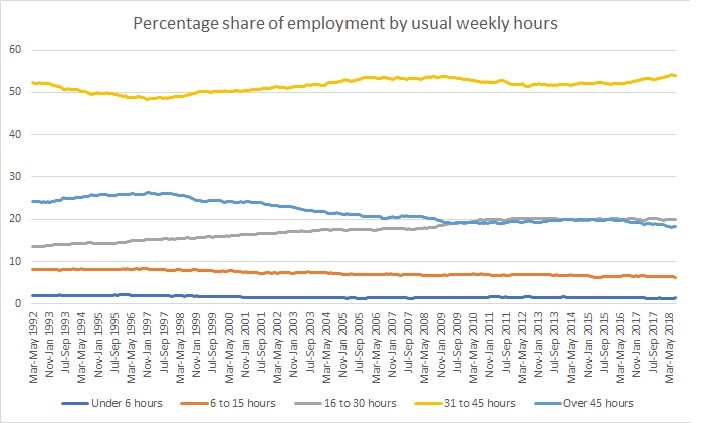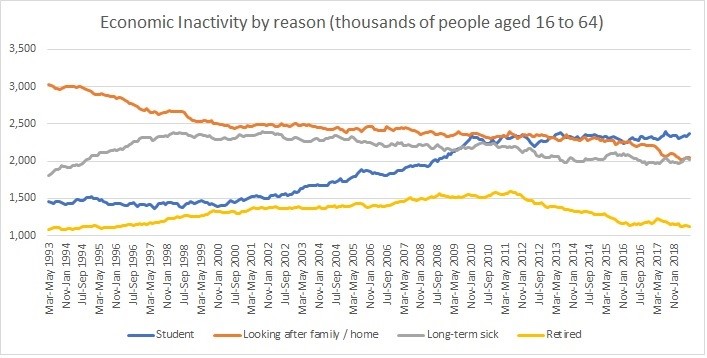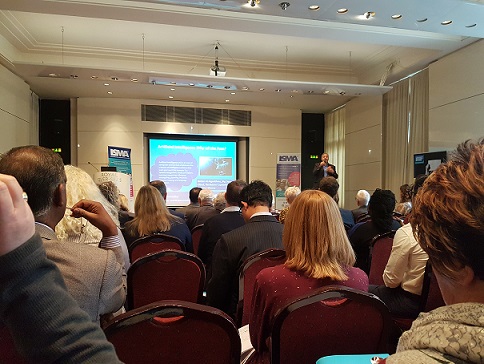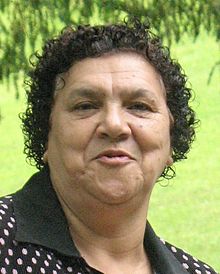Work TV
Watch our TV Channel dedicated to the ‘World of Work’. Explore our video library for informative videos featuring career opportunities at leading companies, franchising opportunities, further education and recruitment professions and their services.
Simon Collyer
Northern Ireland Experimental Claimant Count Increases but The Labour Force Survey Stays the Same
The labour market statistics were published today by the Northern Ireland Statistics & Research Agency.
Labour Force Survey (LFS) unemployment increased over the quarter and was unchanged over the year
The latest NI seasonally adjusted unemployment rate for the period July-September 2018 was 4.1%. The unemployment rate increased by 0.3 pps over the quarter and was unchanged over the year. Although the quarterly change was not statistically significant, the decrease from 2016 rates was statistically significant, and likely to reflect real change.
The NI unemployment rate (4.1%) is level with the UK average and is the fifth highest rate of the UK regions. NI unemployment was lower than the Republic of Ireland (5.6%) and the European Union (6.8%) rates for August 2018.
Half (50%) of those unemployed in NI were unemployed for one year or more, compared to 25% in the UK.
Employment rate decreased over the quarter while the economic inactivity rate increased
- There was a decrease (0.8 pps) in the employment rate (68.5%) over the quarter and an increase (0.4 pps) over the year. These changes were not statistically significant over the quarter or the year but the employment rate is statistically significantly above 2010 rates.
- The economic inactivity rate (28.5%) increased over the quarter (0.6pps) and decreased over the year (0.4 pps). The changes over the quarter and the year were not statistically significant, however, the inactivity rate is significantly above 2016 rates.
NI Claimant Count (Experimental Series) increased over the month
- Universal Credit was introduced in NI in September 2017 replacing income-based Jobseekers Allowance for new claimants. On the October claimant count reference date Universal Credit was available in 27 out of 35 Job Centres in NI, including five out of seven Job Centres in Belfast. Roll out for new claimants will be complete by December 2018.
- In October 2018, the seasonally adjusted number of people on the claimant count (which includes some out-of-work claimants of Universal Credit) was 29,500 (3.2% of the workforce). This represents an increase of 400 from the previous month’s revised figure.
- The claimant count is an experimental statistic as it is still in the development phase.
Confirmed redundancies increased over the year
- The number of confirmed redundancies (2,741) in the most recent 12 months is a third higher than in the previous 12 months. NISRA, acting on behalf of the Department for the Economy, received confirmation that 116 redundancies took place in October 2018 and notification that 263 were proposed between mid-October and mid-November 2018.
Earnings increased over the year
- The latest Annual Survey of Hours and Earnings estimates indicate that median gross weekly earnings for full-time employees in April 2018 was £521, an increase of 4.2% from £500 in 2017. When adjusted for inflation, weekly earnings increased by 2%, following a decrease in real earnings last year.
Commentary
- The unemployment rate (4.1%) increased by 0.3pps over the quarter and was unchanged over the year to July-September 2018. The employment rate (68.5%) decreased over the quarter and increased over the year, while the economic inactivity rate (28.5%) increased over the quarter and decreased over the year. Although the NI unemployment rate is now the same as the UK unemployment rate, the employment rate in NI is the lowest and the inactivity rate is the highest of the UK regions.
- Whilst none of the quarterly or annual changes were statistically significant, the unemployment rate is significantly below and the inactivity rate is significantly above rates in 2016. The employment rate is significantly above rates in 2010.

Image:Shankill Jobs & Benefits Centre.
ABC Comment, have your say below:

Australia Domestic Violence Victims Warn of The National Rental Affordability Scheme Ending
Domestic violence refuge workers have warned survivors could be forced to return to violent relationships when the National Rental Affordability Scheme begins winding down in December.
The end of the ten-year-old scheme will create a spike in homelessness claim critics, while a federal inquiry in Adelaide has heard that one in four single mothers return to abusive partners because their families cannot survive on welfare.
ABC Note: The National Rental Affordability Scheme (NRAS) is an Australian Government initiative to stimulate the supply of new affordable rental dwellings.
The Department of Social Services (Australia) is responsible for the implementation and ongoing management of NRAS, in consultation with the Australian Taxation Office.
ABC Comment, have your say below:

The ONS Explain How The Unemployment Figues are Reached
There is a lot of skepticism about the Unemployment Figures. If people are surveyed, it is argued – not counted - people will claim they are self-employed when they are really claiming and largely relying on benefits. We all have our pride after all. Large numbers of economically inactive people have disappeared as registered claimants and many are surviving on loans from friends, a partner or their parents support, or by trading in drugs like cannabis or in stolen goods. Crime has skyrocketed, and much of it is not reported.
The Essex Police rather foolishly announced in the press recently, that it has been alleged that you have to steal over £100's worth of goods to get charged for shoplifting. Certainly, in other shopping centers, you need to get stopped four times to get charged.
Thus, some people - thankfully a minority of people who are classed as economically inactive, are very active indeed, in a parallel economy. The losses are simply passed onto to customers at higher prices and then, of course, there is the cost of providing courts, the part privatized probation service, prisons and so on. The cost of failing to support young people via the benefits system is not saving at all. The cost just appears elsewhere.
There is an argument that as all countries and the EU and their politicians have a vested interest in portraying a more positive situation that is really the case - that they are all working the same scam some might argue. Most claimants do not commit a crime, they just soldier on. Under Universal, Credit rent arrears are soaring.
The UN's special investigator for poverty is visiting Jaywick as part of a look at the effects of austerity on the UK. Last week they visited Glasgow.
This is what the ONS have to say:
For months now, UK employment has been sitting at or near record highs. Naturally there has been speculation about what is driving the increase, and whether it is mainly because of people on ‘zero hours contracts.’ Jonathan Athow delves into the figures to show how we measure this important figure and what being ‘unemployed’ actually means for official statistics.
In recent months we have seen some very strong headline employment figures showing almost 32.4 million people in work. This from a total population of 41.2 million people aged 16-64. The Office for National Statistics (ONS) provides statistics on those working and out of work. We get this information from a very large survey of households called the Labour Force Survey. Most countries have a similar survey to collect and produce their employment figures.
A fairly common question is how we measure being in work or unemployed. How many hours do you need to work to count as being employed? And if you are not claiming benefits, can you be unemployed? Are these statistics distorted, or even misleading, because ONS includes people working as little as an hour a week?
As with many of our statistics, we use internationally agreed definitions. For employment figures, we use those set out by the International Labour Organization. So, for our UK labour market statistics, everyone aged 16 or over is either:
- employed (has worked at least one hour in the last two weeks);
- unemployed (does not have a job, has been actively seeking work in the past four weeks and is available to start work in the next two weeks, OR is out of work but has found a job and is waiting to start in the next two weeks); or
- economically inactive (does not have a job, has not been looking for a job in the past four weeks and/or is not available to start work in the next two weeks).
In addition to asking people whether they are working, we also ask about their hours of work, and counting people on zero hours contracts is something we are asked about at times. Because we measure their usual hours of work rather than their contracted hours, they are included in our employment figures. We do give a separate number solely for people on zero hours contracts in their main job, but it is worth pointing out they make up a relatively small share of total employment – about 2.5 per cent at the latest count.
But does that mean lots of people working very short hours – perhaps on zero hours contracts – are distorting our employment figures? That is certainly not what the data say. The chart below shows the share of employment by usual weekly hours of work, divided into five time bands.

The share of people working very short hours – fewer than six hours a week – is very low, around 1.5 per cent, or a little over 400,000 people out of the 32.4 million people in work. This is down from around 2 per cent in the early to mid-1990s. The next category – from 6 to 15 hours a week – has also shrunk as a share of employment over the same period of time.
Just over half of employed people work between 31 and 45 hours a week. About 20 per cent of people work between 16 and 30 hours a week, while another 20 per cent work more than 45 hours a week. The pattern seems to be that hours of work at both extremes – fewer than six hours or more than 45 hours – have decreased over the past 25 years or so.
The other side of the coin is being out of work – so, either unemployed or economically inactive. The one that usually grabs the headlines is ‘unemployed.’ To be categorised as unemployed, you must be looking for work and be able to take up employment in the next two weeks. As set out above, we ask people this question directly in the Labour Force Survey. The response determines who counts as unemployed. So, whether you receive a benefit, or which benefit you might receive, does not determine whether you are classified as unemployed. We are more interested in your behaviour and intentions to work than in your benefit status.
The third group, people who are economically inactive (outlined above), is also not defined by benefit receipt. Instead we ask people why they are not working. The three main reasons people aged 16-64 are economically inactive are study, looking after a family, and being long-term sick (obviously retirement would be a much more common reason for people aged 65 or over).

The outcome of all these standards, definitions and specific questions about people’s intentions about working is that we are confident our numbers are not being distorted by a (statistically small) number of people working very short hours. While we measure employment from just one hour a week, the share of people working very short hours has been falling, meaning these numbers actually have less of an impact now than previously. Finally, benefit receipt does not determine whether someone is classed as unemployed or ‘economically inactive’, and so does not influence our statistics.
As noted above, all of this information comes from our Labour Force Survey. Every three months, we ask approximately 90,000 randomly selected people for a few minutes of their time to respond to our Labour Force Survey interviewers face-to-face or over the phone. So if you are approached by the ONS to take part, thanks in advance for your time – without your input, we wouldn’t be able to produce the figures that we do to measure this vital aspect of the British economy.
ABC Note: As we say here about statistics - on a less than serious note - 90% of people are not sure if they believe in statistics or not, and the other 10% don’t know (boom boom).

Image: Jonathan Athow is Deputy National Statistician for Economic Statistics

Image: Some unemployed young people are turning their back on society.
ABC Comment: Have your say below:

Hopeful Traders are Helping Homless People Help Themselves via Fashion and Creativity
Hopeful Traders are raising money to raise awareness of how creativity and collaboration can be enact social impact.
Hopeful Traders are leading the way in using creativity for social impact. Rather than use their ethical streetwear brand to just raise money for homeless and mental health charities, they actually involve those supported by the charities in the creation of their products.
Their range of organic apparel is designed in direct collaboration with people affected by homelessness and mental illness. This not only offers an opportunity for individuals to benefit from sales of their collaborations but also gives them a platform to speak about their experiences.
Head to crowdfunder.co.uk to find out more and get your hands on discounts of their upcoming collections.
You can help Charlie and his team:
|
||||||||||||
Growth 2018 ISMA (International Stress Management Association) Conference at the Royal Over-Seas League
On Friday the ABC attended ISMA (International Stress Management Association) Conference at the:
Royal Over-Seas League, 6 Park Pl, St. James's, London SW1A 1LR.
Carol Spiers FISMA, FPSA, MIHPE is the chair of ISMA - with over twenty years spent as a CEO running a leading UK stress management consultancy. Carole is also a familiar BBC guest broadcaster, best selling author, accomplished speaker and a professional public speaking coach - a fellow and past President of the Professional Speaking Association (London).
Thus, the standard of the speakers was understandably very high - excellent would be a better description.
Image left: The entrance to the Royal Over-Seas League, 6 Park Pl, St. James's, London SW1A 1LR

Image: ISMA Chair; Carole Spiers
Rohit Talwar a futurist was particularly interesting and his talk on where ITC is going in the future with Artificial Intelligence augmenting and assuming many daily tasks but developing to a point where we may have machines with higher brain power than humans. This is Rohit Talwar speaking at another event earlier in the year:
Elizabeth Wright an Australian Paralympic Olympic middle-distance swimming silver medallist - from Sydney had a wonderful tale to tell of her journey to win a silver medal at the Sydney 2000 Para Olympic Games. Born with limbs missing, a congenital condition, doctors felt the shock to her mother would be so great, mum was sedated and rendered unconscious for four days after Elizabeth’s birth. Elizabeth was taught to be independent from early on and she learned to get around as a child by borrowing her brothers skateboard. Painfully shy, the stress of her first competitive experience in Melbourne saw her doing the crawl, not the breaststroke, for the first few yards of her heat - leading to disqualification. Her name in lights on the results board with a DQ next to it. A tearful chat with dad turned things around and seven years later she achieved her dream of winning an Olympic medal. Author and speaker, Elizabeth is studying for the worlds first MA in Character Education through the Jubilee Centre for Character and Virtues at Birmingham University. Alas, technology gremlins failed Liz and she suggested we watch the video of her silver medal swim at home, so we have added the footage below.
Mental Health campaigner South African Geoff McDonald, former VP HR, Unilever had a great personal story. Paralyzed with anxiety and depression out of the blue - a top-flight career came to an abrupt standstill as Geoff could not leave his house for three months. A speculative email to Alistair Campbell, Labour strategist, brought about a meeting and eventually Geoff struck out on his own with a burning passion for tackling mental health in organisations. Simon Collyer, ABC founder, led the clapping when Geoff mentioned bullying, narcissistic bosses – ‘we know about those for sure’. Today in the workplace employees are being ‘frazzled’ with more and more work being given to individual workers as companies talk about being leaner and more efficient, as austerity also bites into the public sector head count. Geoff’s message was that we are looking at the world the wrong way and that people suffering from mental health issues must speak out and reach out for help.


Image: Former BBC Panorama presenter, Penny Haslam
Penny Haslam was the MC and she looked familiar face having worked for the BBC as a news journalist - hosting BBC’s Panorama 2010 -2011 then becoming BBC Breakfast News presenter. Penny has also presented on the News Channel and Radio 5 Live. She is now an inspirational speaker and conference moderator. Quite a resume for someone who started her career as a BBC secretary.
There were many other speakers worth mentioning, panels discussions and afternoon workshops and exhibitors.
Other Keynote Presenters included;
Dany Cotton - London Fire Commissioner
Deep Rajah DHIR - Lyca Radio
All in all, it was a fascinating event with some truly inspirational individuals both on the stage and in the audience.
We will be using many of the ideas, some very simple: Washing up for example, while working a stress ball under the soles of each foot one at a time! Using magnesium (sprayed under the arm pits) available from health stores, alongside controlled breathing techniques to promote earlier and more productive sleep.
Establishing a range of daily rituals for better all-round health outcomes.
It was a great event very worth attending and we look forward with great expectation to next year.

ABC Comment, have your say below:

The 2nd Congress of The International Domestic Workers Federation (IDWF) Will Take Place Nov 16 to 19 In Cape Town, South Africa
Cape Town, South Africa – Over 200 advocates for the rights of domestic workers will gather in Cape Town on the 16th to 19th of this month, as the International Domestic Workers Federation (IDWF) celebrates its five-year anniversary by convening its second Congress. Representatives from IDWF’s 69 affiliated organizations from 55 different countries will come together to discuss the challenges facing domestic workers globally and consult on strategies and solutions, hoping to take inspiration from the achievements of the host country in ridding itself of apartheid and its fight for freedom of its oppressed.

Image: Myrtle Witbooi is a prominent South African labour activist.
South Africa is also home to IDWF’s President, Myrtle Witbooi, who has been involved in the struggle for domestic workers’ rights since the 60s under apartheid, when domestic workers had no legal recourse to protest their Masters. Now South Africa has some of the most progressive domestic worker laws in the global south, and the local organization is actively lobbying for more protections. The country has ratified the ILO Convention 189 on Decent Work for Domestic Workers. Last month, the parliament expanded the COIDA, the occupational health and safety bill, to include all domestic workers.
Witbooi says, “Our work is decent work, and our work makes all work possible.”
There are more than 67 million domestic workers worldwide: cleaners, cooks, caregivers for children, the elderly, and the disabled, as well as others employed in homes. This number is growing rapidly to meet the global ‘care gap’, as need for care givers increases with fewer family members able to stay at home and forego employment, combined with longer life expectancies for the infirm and elderly. Yet, domestic work is routinely undervalued and most domestic workers do not have the same labour protections as other workers.
Throughout the world, groups of domestic workers are standing up to discrimination, rallying for laws that protect both the labour and human rights of domestic workers. At the International Labour Conference in 2011, domestic worker organizations mobilized as a global united force to achieve an international convention to protect their rights – the C189 on Decent Work for Domestic Workers. Following that achievement, and to push for global ratification of C189, the IDWF was formed at its founding Congress in Montevideo, Uruguay in 2013.
Five years later, IDWF has successfully achieved projects that further its goals throughout the world, championing domestic workers, developing the capacity of fledgling affiliates, advocating for countries to ratify C189, and campaigning for local laws that protect domestic workers.
This Congress will allow the members of IDWF a rare and exciting opportunity to share knowledge, affirm their goals, develop their priorities, and make changes to their strategies where necessary. The key issues to be deliberated include:
Addressing discrimination against domestic workers, especially those who are black, migrants and other minority communities;
Identifying the next target countries to ratify the C189 and legal reforms to protect domestic workers;
Developing a rights-based framework for domestic workers in the growing care economy; and
Strategizing to achieve a new international law to address gender-based violence against domestic workers.
Furthermore, the representatives at the Congress will vote on a new 13-member Executive Committee as well as several proposed changes to the constitution. Guest speakers will come from the Labour Ministry of South Africa, the global organizations of International Union of Food Workers Associations (IUF), International Labour Organization (ILO) and Women In the Informal Employment – Globalizing and Organizing (WIEGO), as well as from local organizations, including the Congress of South African Trade Unions (CONSATU) and the South African Domestic Workers’ Union (SADSAWU).
Guests include representatives from groups interested in the rights of women, migrants, and workers, as well as academics and trade unionists. But it is the domestic workers who will be the focus of Congress.
As Witbooi says, “There is no difference between us, we all work for employers, we all suffer the same, we all understand low wages. We are workers and our work is decent work. And like we say: nothing for us, without us. ”
The 2nd Congress of the International Domestic Workers Federation (IDWF) will take place Nov 16 to 19 in Cape Town, South Africa
ABC Comment, have your say below:

The ABC Receives Some Lighting Kit
The ABC has just recieved a delivery of lighting equipment from Proav - specialist equipment suppliers to the film world.
Alex Mayer MEP for the East of England is coming down in December (subject to all the usual things that could get in the way - General Election being called, etc) to do a photocall with the ABC, as this was purchased with some kind help from a European Union in the form of a LoCase (Low Carbon Grant).

Image: Alex Mayer MEP
Thanks to our friends from Proav for some great service. If you want expert advice and help they are the guys to go to:
Universal Credit Managed Migration Regulations
Following the changes announced in the Budget above, on 5th November, the Secretary of State for Work and Pensions laid the Managed Migration Regulations.
The regulations will:
- * Protect 500,000 people’s Severe Disability Premium at the point of migration.
- * Deliver Transitional Protection for those we move, to ensure that at the point of moving, those receiving benefits do not lose a penny.
- * Open up the world of work for those trapped on legacy benefits and provide targeted support for vulnerable claimants through Universal Credit.
We have also extended the statutory notice period for people moving from their legacy benefits to Universal Credit from 1 month to 3 months, to allow claimants maximum time to prepare and make their claim before their legacy award expires.
The Regulations covering England, Scotland and Wales
The Regulations covering Northern Ireland
ABC Comment; have your say below:

Recent Changes to Universal Credit System - Which You Might Not Have Heard About
DWP is making incremental changes to Universal Credit all the time, to improve the experience for claimants they say.
This is the latest news from the DWP. In their own words:
++++
In addition to the measures set out above, a few recent changes introduced in the last quarter include:
Supporting vulnerable claimants in verifying their identity
We have introduced improvements to the way we can verify identity.
The vast majority of claimants are verified successfully using the options currently available. However, it is sometimes the case that our most vulnerable claimants have to be verified using third parties. The following improvements are expected to support this group in particular if the claimant is unable to use the core identity verification options.
Gather Information and Confirm
Information can be gathered from the claimant and compared against any information held by DWP in order to confirm the claimants’ identity.
Know and Recognise
If the claimant has not provided at least two pieces of documentary evidence, or has failed ‘Gather Information and Confirm’, identity can now be verified if two or more members of the Jobcentre know the claimant as part of their job role.
New Documentary Evidence
The following documents can now be considered as primary evidence for Universal Credit:
- Non-EEA Passport
- Bank Card supported by bank statement showing full account information. This account must be in the claimant’s name and must be the account their Universal Credit is being paid in to
- Citizen’s Card
- Young Scot Card with PASS hologram
The following document can now be considered as secondary evidence for Universal Credit:
- Building Society Passbook
These changes make it easier to confirm identity for some of our most vulnerable claimants and will speed the payment of advances where claimants do not have identity documents available.
Statement Enhancements
We have acted to support people who need to prove that they receive Universal Credit, for example where employers need to confirm receipt of Universal Credit, or as part of ID verification for those attempting to open a bank account.
We have improved the layout and detail on the Universal Credit statement so that it is printable and clearly sets out the name and entitlement of the claimant.
The statement has also been enhanced to ensure that employed earnings, self-employed earnings, earnings surpluses and self-employed losses, and how they have affected the calculation, are explained more clearly. This makes it easier for claimants to understand the calculation and for agents to understand and explain, if asked by the claimant.
Landlord Portal Expansion
We have extended the Landlord Portal. 538 social landlords are now using this tool which streamlines the verification process for claimants and provides more information for landlords.
The Landlord Portal allows social sector landlords to verify their tenants’ housing costs. Landlords are also able to request managed payments of rent for potentially vulnerable claimants.
Fit notes
We have made changes to clarify parts of the Work Capability Assessment (WCA) process for claimants. We only need valid medical evidence that covers the duration of the condition(s), up until the WCA decision. The requirement for the medical condition on a Statement of Fitness For Work to match that declared by the claimant has been removed. This means that claimants will no longer be asked to obtain a new fit note where their declared health condition is not identical to the Statement of Fitness For Work.
Advances
It is now possible for claimants to request advances online. The service gathers the amount required and repayment schedule, as agreed with the claimant, to automatically grant the advance. Previously claimants had to call a service centre to claim an advance.
Claimant view of housing
We have made it easier for claimants to report a change in their housing declaration, and to review the information they have declared previously.
Now, when a claimant reports a change in ‘Where you live and what it costs’ their current housing declaration will be displayed along with a ‘change’ button. This means the claimant will be aware of their current housing declaration and will be able to change it if necessary.
ABC Comment; have your say below:

Professor Philip Alston, The UN’s Special Rapporteur on Extreme Poverty And Human Rights Visits Glasgow
Speaking ahead of a roundtable meeting with Professor Philip Alston, the UN’s special rapporteur on extreme poverty and human rights, in Glasgow today (Friday 9th November) John Dickie, Director of the Child Poverty Action Group (CPAG) in Scotland said;
“This UN investigation must shine a spotlight on the extreme hardship the UK government's benefit freeze and flawed universal credit roll-out is pushing children into. That we see children across Scotland, and the rest of the UK, being forced to rely on food banks, deprived of core school opportunities and having the joy of childhood undermined by hopelessly inadequate family finances is unforgivable.
While the drivers of rising hardship are UK government driven, there are also solutions here in Scotland. It is vital that swift progress is made to deliver on the welcome Scottish Government commitment to a new income supplement for families. An initial supplement must be introduced as quickly as possible, with resources allocated in the forthcoming Scottish Budget to begin delivery in 2019/20. An immediate £5 top up to child benefit could, for example, lift tens of thousands of children out of poverty.
More generally the Scottish Government’s commitment to the principle that social security is a human right is more important than ever. It is now vital that the detailed provisions that will underpin devolved benefits have clear regard to that principle and to international human rights frameworks so that the damage we have seen done to UK social security is never repeated in the new Scottish system.
Every week that passes sees more children pushed into poverty as UK welfare reforms hack away at the value of the vital support that families in and out of work rely on. A step change in the scale of investment here in Scotland is now needed to avert the government's own horrendous projection of a future where 2 in every 5 children are living in poverty by 2030."

Image: Courtesy of Wikipedia; Philip G. Alston
ABC Note: Philip G. Alston is an international law scholar and human rights practitioner. He is John Norton Pomeroy Professor of Law at New York University School of Law, and co-Chair of the law school's Center for Human Rights and Global Justice.
ABC Comment Have your say below:
























